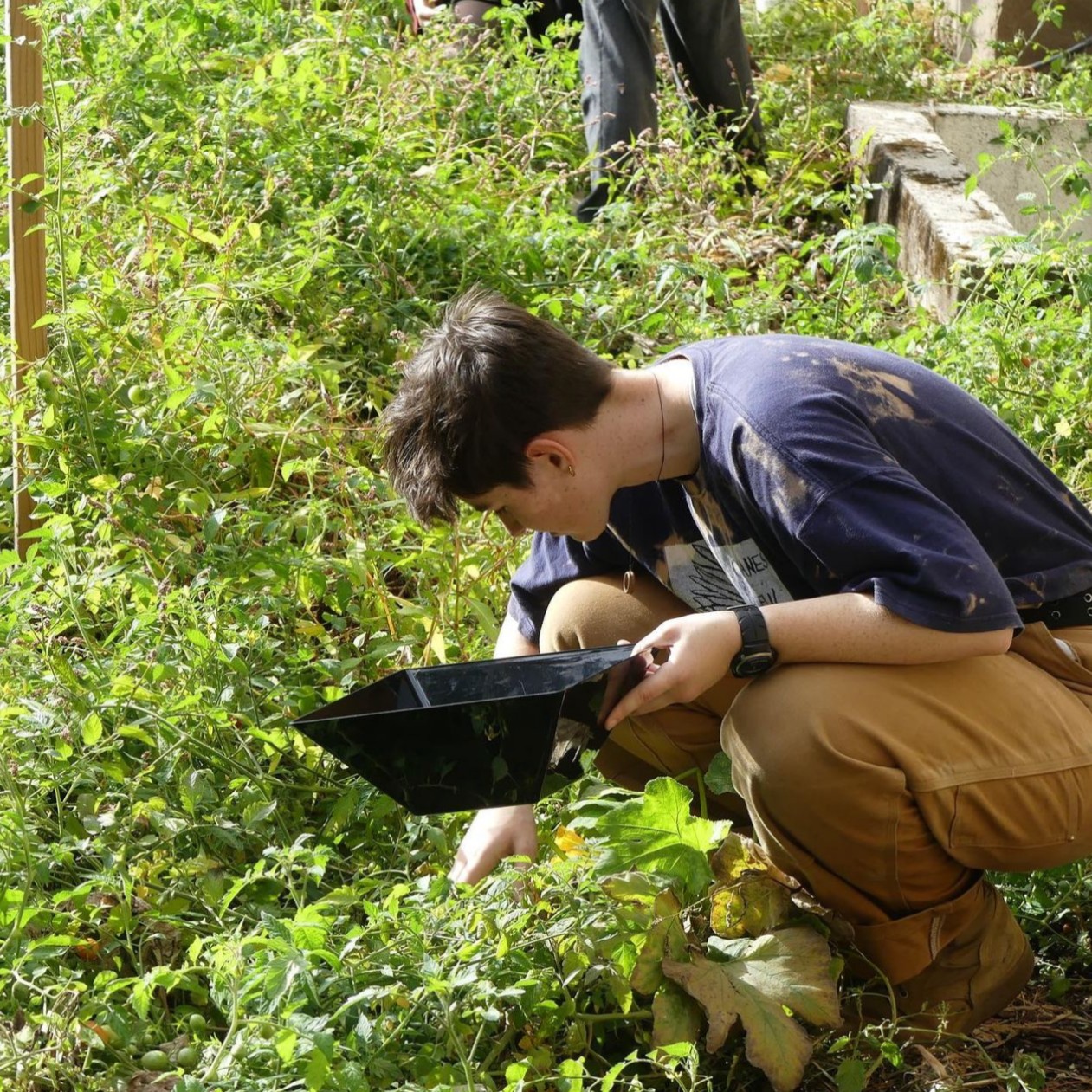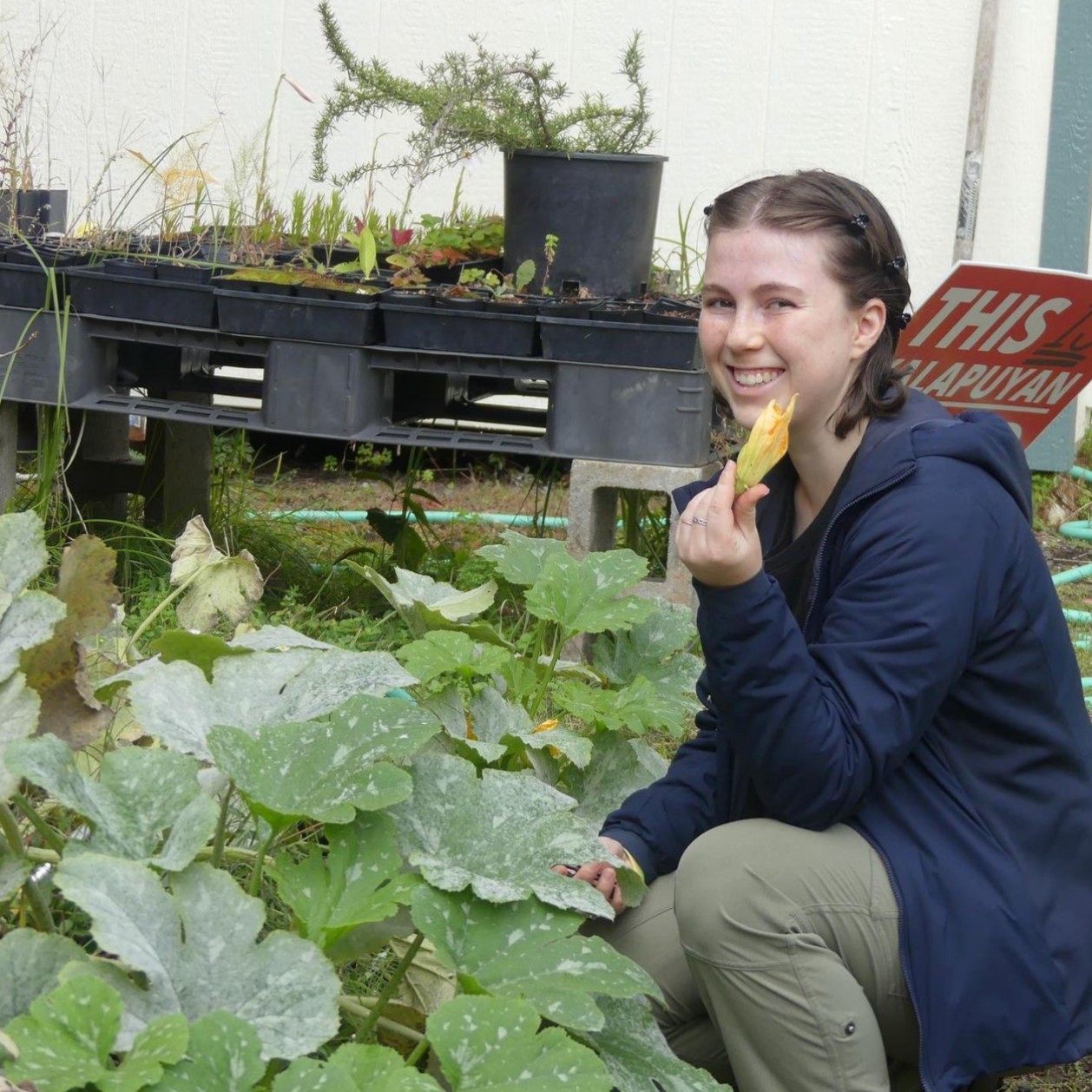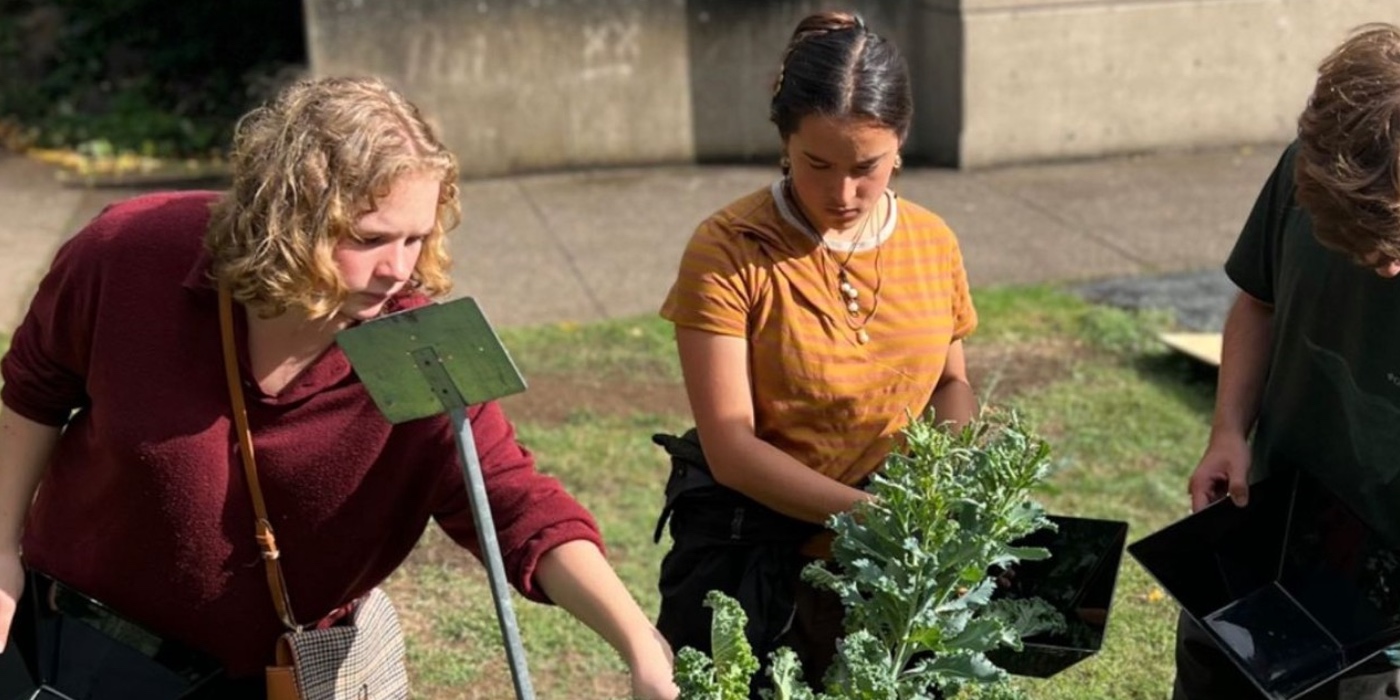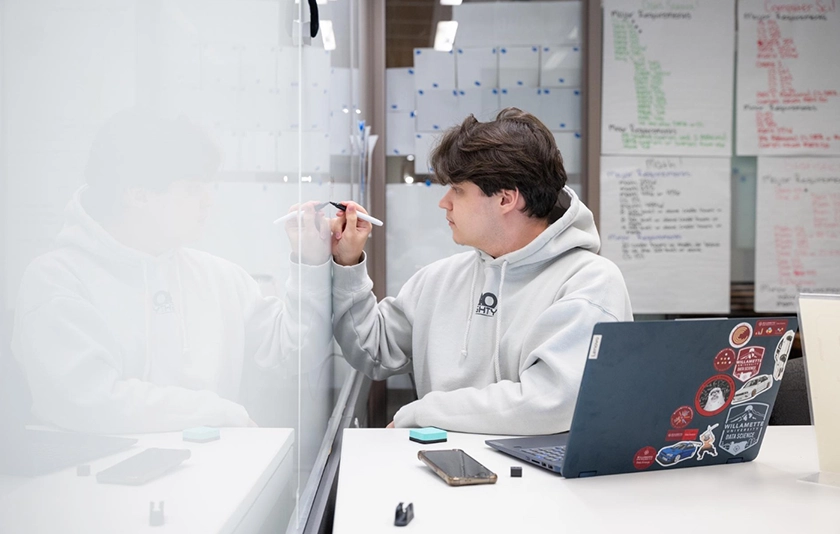Maybe you’ve seen the inviting squash or vibrant red bell peppers as you walk past Gatke Hall. Or, maybe you’ve noticed the cherry red tomatoes in front of Baxter. Emblematic of Willamette’s engaged and active community, these plots are part of the Farm Club’s initiative to grow food on campus, for the campus.
 Farm Club president and Environmental Science major, Adelaide Kemp BS’25, and vice president Harlow Lawson BS’26, Environmental Science and Biology major, report that their crops include squash, kale, green beans, peppers, onion, garlic, and tomatoes, along with corn, rhubarb, strawberries, plums, and figs. Their primary crops are located in the community garden, found between the Hatfield Library and Sparks Gymnasium, but they have “guerilla gardens” sprinkled throughout the Salem campus. The club has even found partners in Willamette’s Facilities Department staff who help ensure the plants grow big enough to eat.
Farm Club president and Environmental Science major, Adelaide Kemp BS’25, and vice president Harlow Lawson BS’26, Environmental Science and Biology major, report that their crops include squash, kale, green beans, peppers, onion, garlic, and tomatoes, along with corn, rhubarb, strawberries, plums, and figs. Their primary crops are located in the community garden, found between the Hatfield Library and Sparks Gymnasium, but they have “guerilla gardens” sprinkled throughout the Salem campus. The club has even found partners in Willamette’s Facilities Department staff who help ensure the plants grow big enough to eat.
Early in the fall semester, the Farm Club partnered with Bon Appétit food services to provide food for a campus event. “We harvested produce from the community garden and other spots on campus to make grain bowls that were super yummy,” shares Kemp. “Our goals were to build enthusiasm, grow community, and have fun!”
These community-focused initiatives are at the heart of the Farm Club’s mission. Lawson says that the club works together on community projects in Salem and hosts weekly or bi-weekly garden events for planting and harvesting. A highlight this semester was building a tool shed for Marion Polk Food Share, a nonprofit working to end hunger in Oregon.
 Students participate in the Farm Club to learn how to nurture food crops or develop their existing knowledge. Kemp, who always has a small garden at home and loves small-scale food growing, was excited to increase her knowledge through the Farm Club. Lawson was always interested in plants and farming and discovered a passion for growing food when they worked for facilities, which led them to join the Farm Club.
Students participate in the Farm Club to learn how to nurture food crops or develop their existing knowledge. Kemp, who always has a small garden at home and loves small-scale food growing, was excited to increase her knowledge through the Farm Club. Lawson was always interested in plants and farming and discovered a passion for growing food when they worked for facilities, which led them to join the Farm Club.
As any experienced gardener or farmer knows, growing seasons are not without challenges. “We have had some issues with aphids in the kale, but we are brainstorming solutions,” shares Lawson. However, the club continues to expand its endeavors with plans for new, long-lasting metal raised beds and a newly laid-out garden. They have also begun utilizing their results from this year to start planning for next year. Keep your eyes peeled for new crops!



